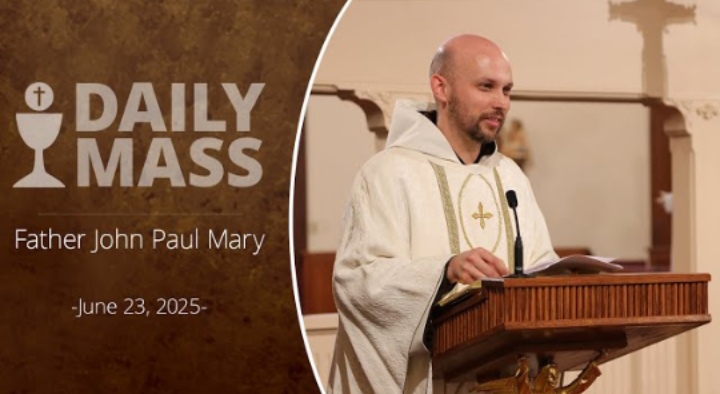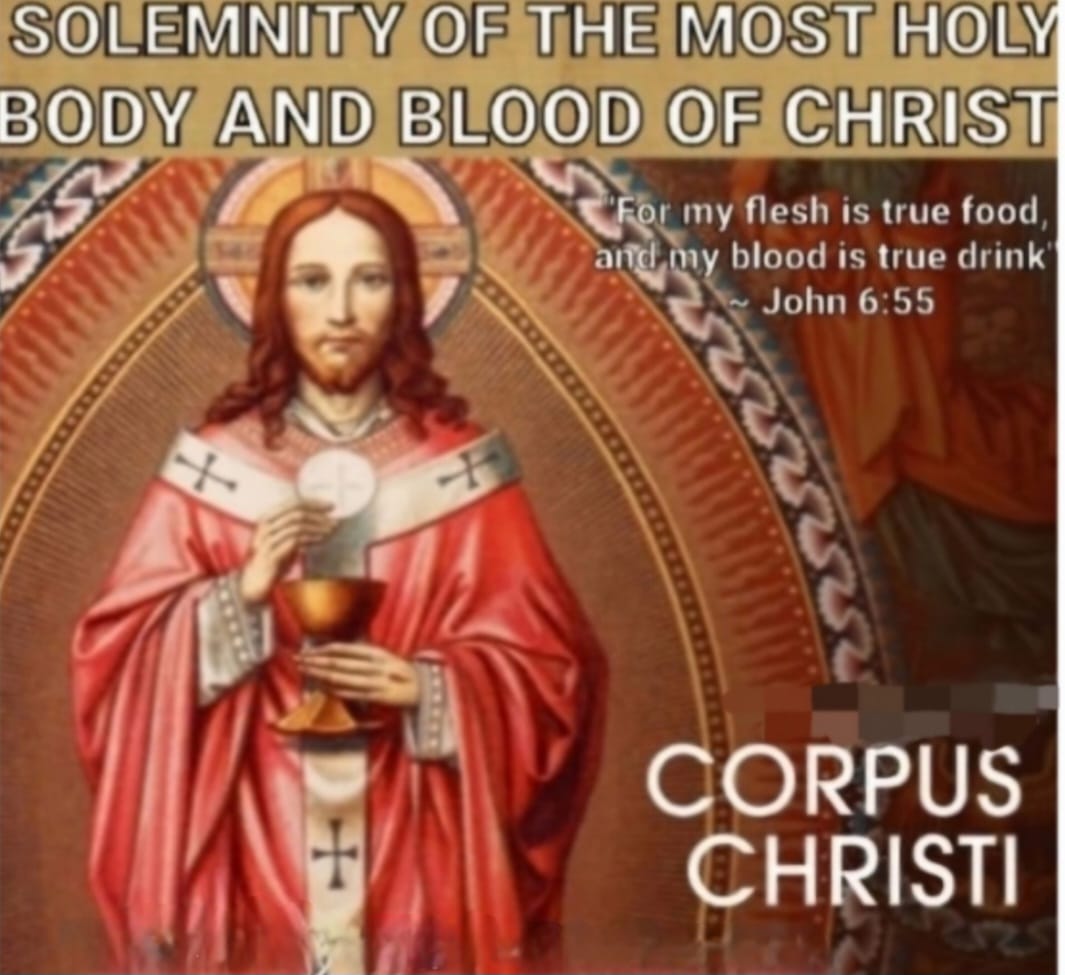
SOLEMNITY OF THE NATIVITY OF SAINT JOHN THE BAPTIST
Today, we celebrate the Solemnity of the Nativity of Saint John the Baptist, the one whom the Lord had sent to be His own Herald, in...

Today, we celebrate the Solemnity of the Nativity of Saint John the Baptist, the one whom the Lord had sent to be His own Herald, in...

MONDAY OF THE TWELFTH WEEK IN ORDINARY TIME SAINTS OF THE DAY ~ FEAST DAY: JUNE 23, 2025 MEMORIAL OF SAINT ETHELDREDA (AUDREY), VIRGIN; SAINT MARY...

Holy Mass and Holy Rosary | EWTN | June 23, 2025 Watch “Holy Mass from the National Shrine of the Divine Mercy” | June 23, 2025...

MEMORIAL OF SAINT ETHELDREDA (AUDREY), VIRGIN; SAINT MARY OF OIGNIES, RELIGIOUS AND SAINT JOSEPH CAFASSO, PRIEST ~ FEAST DAY: JUNE 23RD Today, we celebrate the Memorial of...

SOLEMNITY OF THE MOST HOLY BODY AND BLOOD OF CHRIST [FEAST OF CORPUS CHRISTI] | https://dailyreflectionswithphilomena.com/solemnity-of-the-most-holy-body-and-blood-of-christ-the-feast-of-corpus-christi/ [Solemnity of the Most Holy Body and Blood of Christ...

Today, we celebrate the Solemnity of the Most Holy Body and Blood of Christ, also known as the Feast of Corpus Christi. The feast of the...

Holy Mass and Holy Rosary | EWTN | June 22, 2025 Watch “Holy Mass from the National Shrine of the Divine Mercy” | June 22, 2025...

LIVE | Pope Leo XIV’s Holy Mass on Corpus Christi Mass and Eucharistic Procession | June 22, 2025 Most Holy Body and Blood of Christ –...

MEMORIAL OF SAINT PAULINUS OF NOLA, BISHOP; SAINTS JOHN FISHER, BISHOP AND MARTYR AND THOMAS MORE, MARTYR AND SAINT ALBAN, MARTYR ~ FEAST DAY: JUNE 22ND Today,...

SATURDAY OF THE ELEVENTH WEEK IN ORDINARY TIME SAINTS OF THE DAY ~ FEAST DAY: JUNE 21, 2025 MEMORIAL OF SAINT ALOYSIUS GONZAGA, RELIGIOUS (JESUIT SEMINARIAN)...